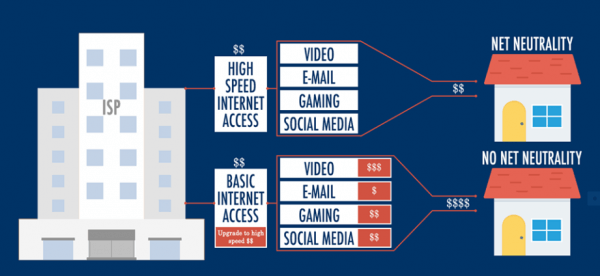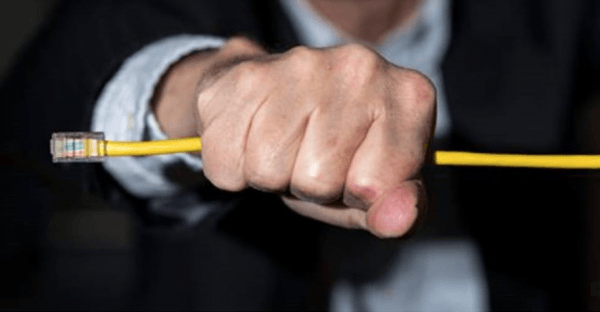Net neutrality is dead. It enjoyed a short but eventful life. The policy came into effect on June 12th, 2015, then perished on June 11, 2018. Just three years and a day; a toddler really. During those few years, however, net neutrality was one of the most talked about topics in the tech and public policy field. How big of an impact will this have on our lives? Really, that depends on how major Internet service providers react.
Had net neutrality been maintained, the Internet would have been an open and free “utility.” Anyone looking to set up a website would have had equal access to the World Wide Web, at least as far as ISPs are concerned. Without net neutrality, ISPs will be able to create fast and slow lanes. This could have a huge impact on the provided Internet services.
Let’s take an easy to understand example. Ever use Netflix? Roughly 50 million Americans are subscribed to the popular online streaming service. Going forward, if ISPs decide to, they could charge either Netflix or consumers extra money in order to ensure that Netflix is streamed at a high speed. If you don’t pony up the bucks, your streaming speeds could be slowed down. In a worst-case scenario, you might not be able to stream Netflix at all.
Would an ISP do that? We’ll see. Before the Obama administration put net neutrality in place, ISPs declined to do this even though they had the freedom to. In a competitive market with multiple ISPs fighting for your business, such a move would be unlikely. However, many ISPs are essentially regional monopolies, facing little and sometimes no competition. This is very similar to most other utility companies. Without ample competition, ISPs are not driven by market forces to deliver a neutral Internet.

So let’s take a more specific example to understand how this could impact consumers and why an ISP might create a nonneutral Internet. Comcast is the largest private ISP in the world and is also one of the largest content producers, owning NBC Universal. This means Comcast has a lot of skin in the content production game. As far as content goes, Netflix is a direct competitor, and yet at the same time, Netflix relies on Comcast to deliver its streaming service to millions of American households.
What if Comcast decided to charge Netflix or consumers using Netflix extra fees? Perhaps they want to launch a rival service to Netflix, or maybe they simply want a cut of Netflix’s profits. With net neutrality that would have been all but impossible. Without Netflix, there’s nothing stopping Comcast from doing so.
In a competitive market, consumer backlash might restrain Comcast, but given the near monopoly conditions ISPs enjoy, they could potentially “tax” Netflix and consumers would have no choice but to pony up. Even if Comcast charges Netflix, you can be certain that the costs will be passed onto consumers in some way.

Could fast and slow lanes be applied to politics? Let’s say Comcast decides to back one political party. If Comcast wanted to support liberal causes, it could slow down access to Breitbart, Fox News, and other right-wing websites. Likewise, if Comcast wanted to back Republicans, it could target the Washington Post, Amazon, MSNBC, and others.
In Portugal, Spain, and other countries that lack net neutrality, consumers are often offered packages. Want to stream Netflix? No problem, just fork over an extra $10 bucks a month. Want to use Facebook frequently? Sure thing, here’s our $10 social media package. Unfortunately, American citizens may soon have to pay for such social media packages.
For now, this remains speculative and with so many pending court cases and so many people calling for an open and free Internet, it’s unlikely that ISPs will rush to change the rules. However, if pressure dies down and legal cases turn out in the favor of ISPs, it may only be a matter of time until the Internet becomes a pay-for-play place.
















